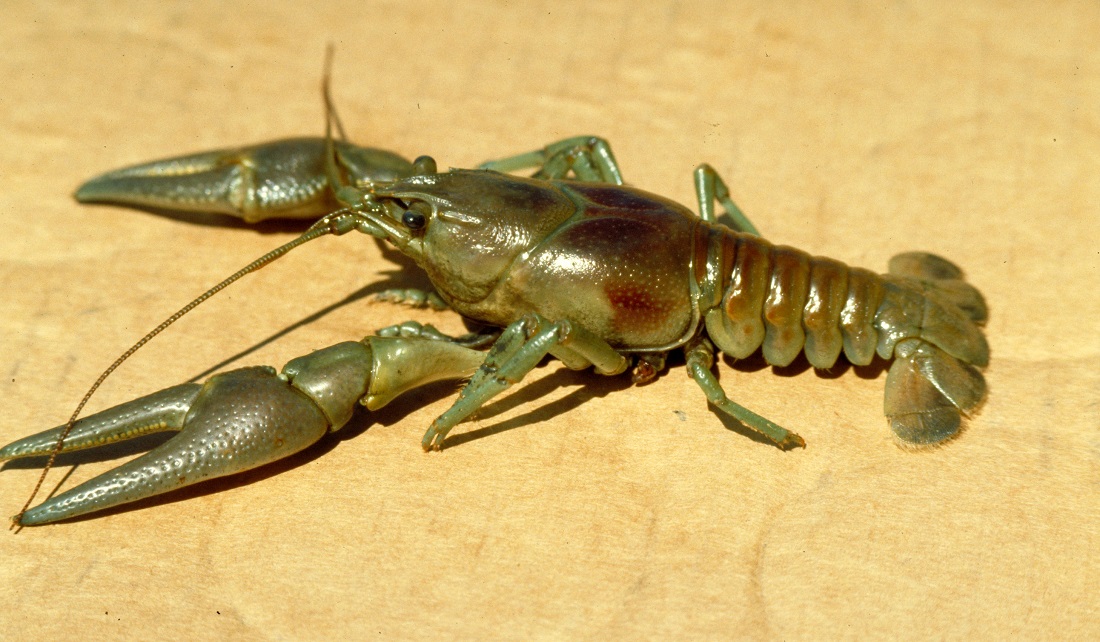
Much needed attention has been directed at some particularly problematic aquatic invasive species in the Great Lakes, such as Asian carps and zebra and quagga mussels. But others invaders, like crayfish, can also take their toll on the lakes.
Illinois-Indiana Sea Grant (IISG) has created a new collaborative that brings together a variety of experts and stakeholders to address the threat of invasive crayfish. The Invasive Crayfish Collaborative (ICC), includes 68 experts and other stakeholders from government agencies, universities, non-profit organizations, and private businesses to combine resources and expertise to address priority invasive crayfish research and outreach needs.
Rusty crayfish, native to the Ohio River basin, are already in all Great Lakes states. These invaders can dramatically alter food webs in aquatic environments, first reducing populations of slow moving invertebrates, like snails, and then, when that food source is gone, turning to plants. The crayfish’s consumption of aquatic vegetation can lead to a total loss of rooted plants in the water, which, in turn, can contribute to changes in fish populations.
Other non-native crayfish species also pose a threat to the region, including the red swamp crayfish—listed as one of the 100 worst invasive species in the world, the Australian red claw, and another Australian species, yabby crayfish, which have the ominous scientific name of Cherax destructor.
“Techniques for managing invasive crayfish are largely lacking. Because of this, current efforts to prevent their introduction and spread are mostly aimed at anglers and pet owners—encouraging them to refrain from releasing crayfish into new bodies of water,” said Pat Charlebois, IISG aquatic invasive outreach coordinator.
Funding for research on invasive crayfish management is also limited, so ICC is identifying priority invasive crayfish research needs. U.S. EPA has funded IISG through the Great Lakes Restoration Initiative to establish the new collaborative for the Great Lakes region.
“We know that preventing the arrival of new invasive species, and controlling the spread and impacts of those already here, requires everything from basic research to policy and outreach,” said Reuben Keller of the Institute of Environmental Sustainability at Loyola University Chicago, who is funded through this project to identify species of concern for the Great Lakes. “This collaborative will bring together experts and stakeholders so that the risk of invasive crayfish in the Great Lakes can be better understood and managed, and we encourage all stakeholders to get involved.”
The work of the collaborative will include prioritizing research and outreach needs, identifying crayfish of particular concern, developing a framework for evaluating management techniques, and creating communication tools for ICC members, including a website.

